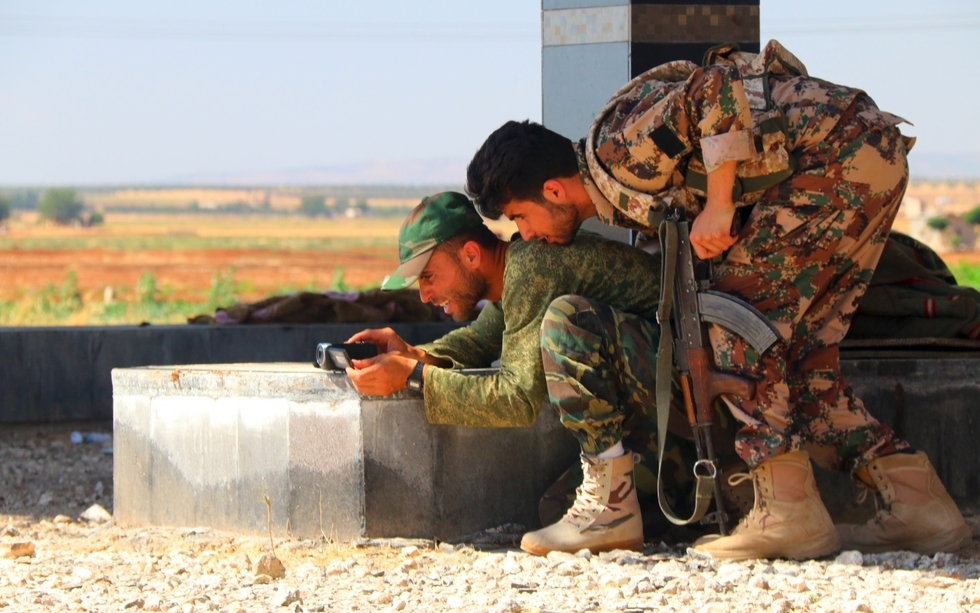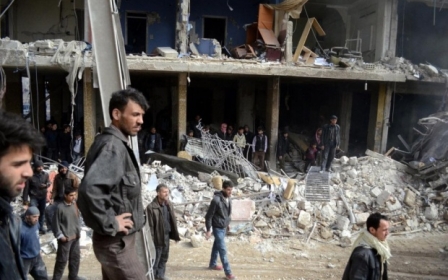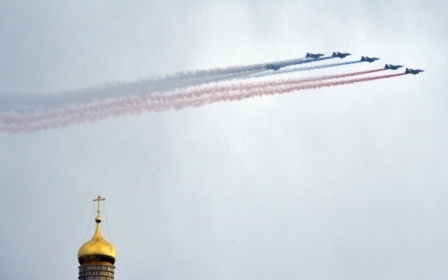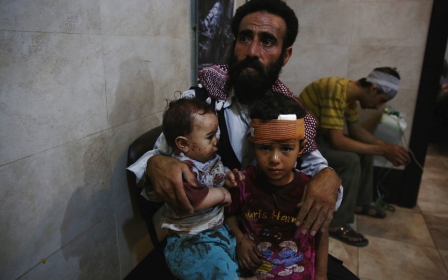47 dead as Syrian rebels battle IS in Aleppo province: Monitor

A battle between Islamic State militants and rebels for control of an opposition stronghold in northern Syria has killed at least 47 fighters, a monitor said on Saturday.
Twenty Islamist and other rebel fighters were killed in the clashes in Aleppo province throughout Friday, along with 27 IS militants, the Britain-based Syrian Observatory for Human Rights said.
The fighting centred on the town of Marea, a key rebel bastion that IS has been trying to capture for months.
The Observatory said fighting was ongoing around the town, which rebel forces still control, as well in villages in the surrounding area.
Marea is one of the most significant rebel-held towns in northern Aleppo and lies on a key supply route running to the Turkish border.
IS has targeted the town for months, seeking to expand westwards from territory it already holds in Aleppo province.
Last week, IS advanced in the area, seizing five villages from rebel forces around Marea after allegations it had used a chemical agent, possibly mustard gas, in its attacks.
The IS advances came despite an agreement between Turkey and the United States to work on the establishment of an IS-free zone in northern Aleppo.
In recent days, the US-led air campaign fighting IS in Syria has carried out strikes against the group near Marea, according to the Pentagon.
More than 240,000 people have been killed in Syria since the conflict began in March 2011 with peaceful anti-government protests.
It has evolved into a complex multi-front war, with government and rebel forces as well as Kurds and IS involved in the fighting.
Six Assad loyalists dead in Druze unrest
Meanwhile, at least six government security personnel were killed in overnight protests in the heartland of Syria's Druze minority after the assassination of an anti-government cleric, the Observatory said on Saturday.
Supporters of Sheikh Wahid al-Balous, who was the leader of a powerful Druze militia, blamed the government for twin car bombings in the southwestern city of Sweida that killed him and 27 other people, the Syrian Observatory for Human Rights said.
"Six members of regime security forces were shot dead on Friday night during demonstrations in Sweida," Observatory chief Rami Abdel Rahman said.
Balous was a popular figure among Syria's Druze minority which made up around three percent of the country's pre-war population of 23 million.
He led the "Sheikhs of Dignity" group, Sweida's most powerful militia, and fought the Islamic State group and al-Qaeda affiliate Al-Nusra Front.
But he also opposed conscription of Druze men in a province where thousands of the sect's members have evaded service in the Syrian army's dwindling ranks, refusing to take up arms outside their own areas.
As word of Balous's death spread on Friday night, protesters pelted the municipality building with stones, and gunfire was heard outside two security headquarters in the city.
Residents said demonstrators also smashed a statue in the city centre of Hafez al-Assad, father and predecessor of Bashar al-Assad.
Local Druze clerics later intervened with the protesters to urge them to return home.
On Saturday, calm returned to the city although residents said internet connections remained down and an army checkpoint blocked the main road to Damascus.
In the capital, a security source insisted the demonstrations were against "terrorism" not Assad.
State media reported the car bombs but made no mention of Balous's death.
Sweida has largely been spared the violence that the rest of Syria has experienced since the March 2011 uprising.
But there has been occasional unrest, including a protests days before the bomb attack by residents demanding better government services, including power and water.
Balous reportedly backed the demonstrators, an activist said.
New MEE newsletter: Jerusalem Dispatch
Sign up to get the latest insights and analysis on Israel-Palestine, alongside Turkey Unpacked and other MEE newsletters
Middle East Eye delivers independent and unrivalled coverage and analysis of the Middle East, North Africa and beyond. To learn more about republishing this content and the associated fees, please fill out this form. More about MEE can be found here.




